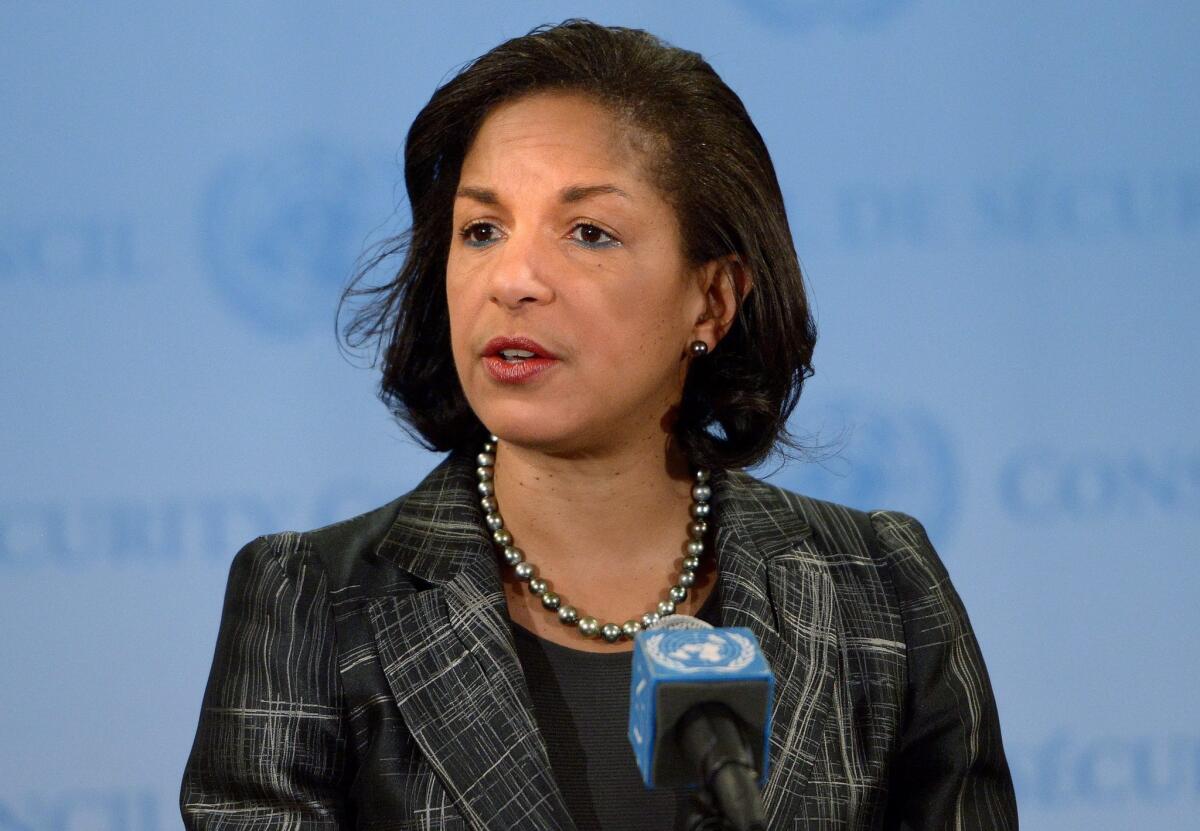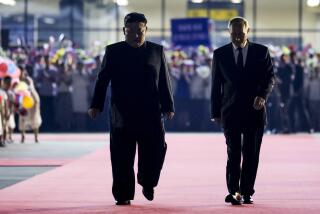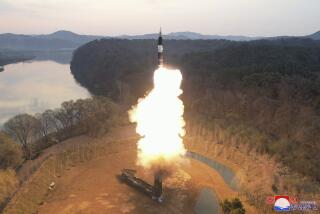White House pushes for new sanctions on North Korea

WASHINGTON -- The Obama administration Tuesday called on the United Nations to tighten international sanctions against North Korea in response to that country’s third and most powerful nuclear test, but administration officials argued that the new leaders in China have the greatest influence over Pyongyang.
“This is a critical test for the new Chinese leadership,” said a senior administration official who asked to remain unidentified because of diplomatic sensitivity. “China has a unique amount of potential leverage with North Korea given their relationship.”
President Obama is expected to mention North Korea in his State of the Union speech Tuesday night, but an aide said he hasn’t changed the prepared text because of Monday’s nuclear test.
Obama spoke to South Korean President Lee Myung-bak on Tuesday morning to reaffirm U.S. defense commitments, according to a White House statement.
Following a meeting of the U.N. Security Council, U.S. Ambassador Susan Rice called for a “swift, credible and strong response” that would impede North Korea’s nuclear and missile programs and its ability to proliferate its banned weaponry.
Rice said new financial sanctions, including those aimed at banks, were “areas that we think are ripe for appropriate action.”
Though North Korea is one of the most heavily sanctioned countries in the world, many experts believe that Beijing would be reluctant to squeeze Pyonyang’s energy or food supplies too strongly for fear that the impoverished regime will collapse, leaving a powerful reunited Korean state with U.S. troops on China’s door.
While the White House looked to China for action Tuesday, others in Washington, speaking from both liberal and conservative perspectives, called for the administration to show new leadership on the issue.
The White House, frustrated that North Korea responded to Obama’s 2009 offer of engagement with an escalating series of nuclear and missile tests, has refused to offer economic concessions and diplomatic contacts that the Pyongyang regime has sought.
But the latest test brought complaints that the White House approach has led to a standoff that allows North Korea’s rudimentary program to slowly improve.
Frank Jannuzi, deputy executive director of Amnesty International and a former Senate aide to Secretary of State John F. Kerry, said North Korea and the United States “keep repeating their behaviors and expecting a different outcome.” He said the administration should instead try to reengage with the regime, and offer plans to lift the entire country out of its poverty and isolation.
Victor D. Cha, an White House advisor on North Korea during the George W. Bush administration, also called for the administration to give the issue higher priority, and to reconsider diplomatic engagement.
“The cost of doing nothing is that the weaponization goes further and further,” said Cha, now with the nonpartisan Center for Strategic and International Studies. “And it becomes harder and harder to reengage.”
[For the Record, 4:14 p.m. PST Feb. 12: The spelling of Frank Jannuzi’s name has been corrected.]
Follow Politics Now on Twitter and Facebook
More to Read
Get the L.A. Times Politics newsletter
Deeply reported insights into legislation, politics and policy from Sacramento, Washington and beyond. In your inbox three times per week.
You may occasionally receive promotional content from the Los Angeles Times.











